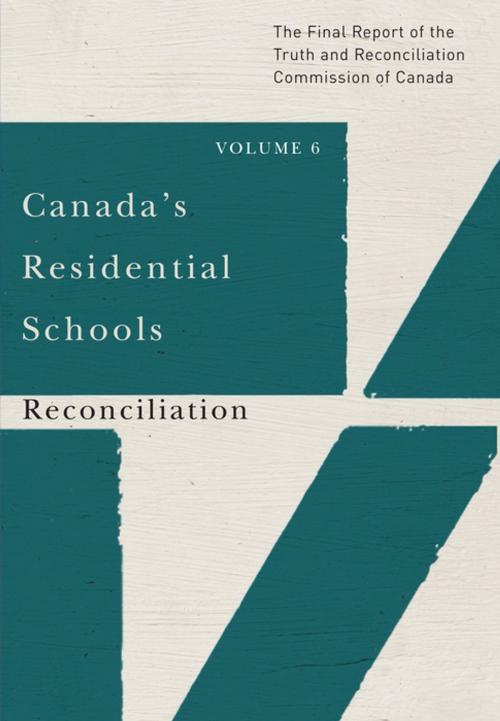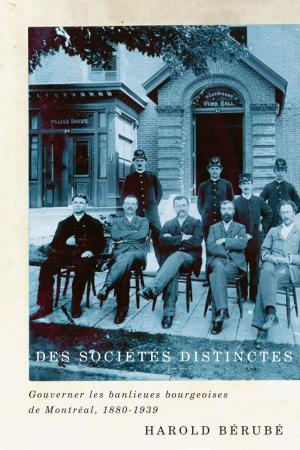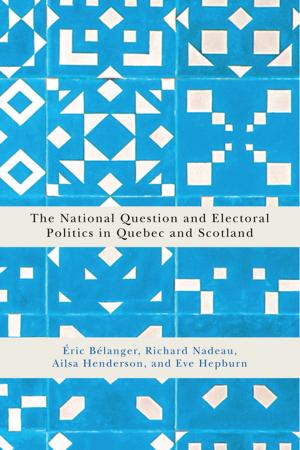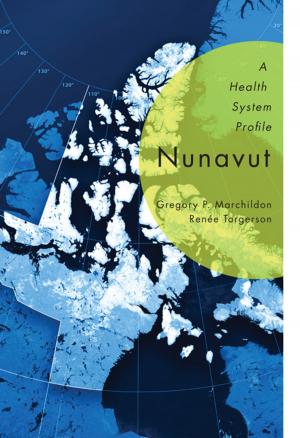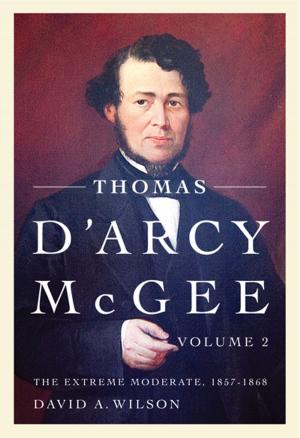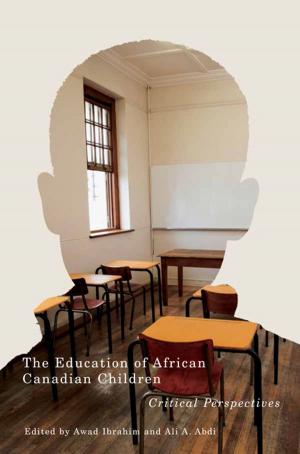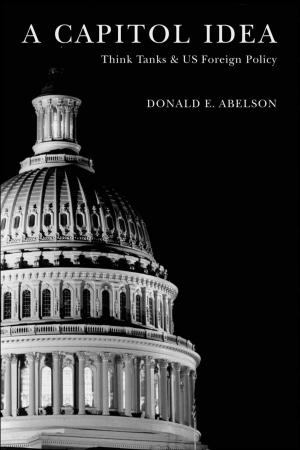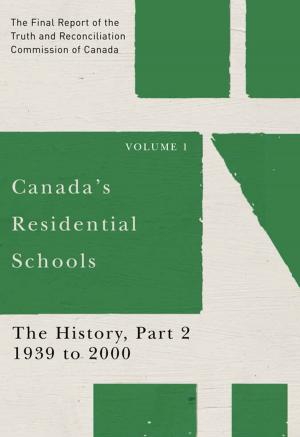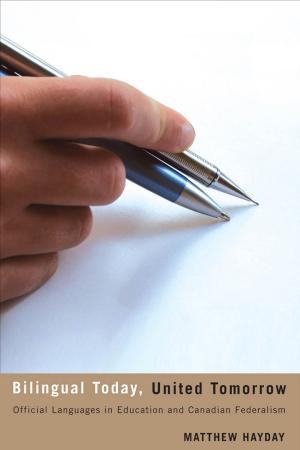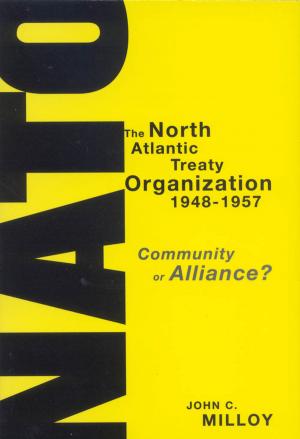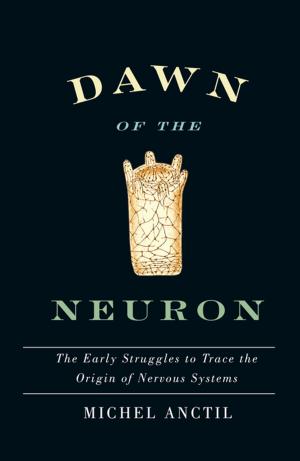Canada's Residential Schools: Reconciliation
The Final Report of the Truth and Reconciliation Commission of Canada, Volume 6
Nonfiction, Social & Cultural Studies, Social Science, Cultural Studies| Author: | Truth and Reconciliation Commission of Canada | ISBN: | 9780773598300 |
| Publisher: | MQUP | Publication: | January 1, 2016 |
| Imprint: | MQUP | Language: | English |
| Author: | Truth and Reconciliation Commission of Canada |
| ISBN: | 9780773598300 |
| Publisher: | MQUP |
| Publication: | January 1, 2016 |
| Imprint: | MQUP |
| Language: | English |
Between 1867 and 2000, the Canadian government sent over 150,000 Aboriginal children to residential schools across the country. Government officials and missionaries agreed that in order to “civilize and Christianize” Aboriginal children, it was necessary to separate them from their parents and their home communities. For children, life in these schools was lonely and alien. Discipline was harsh, and daily life was highly regimented. Aboriginal languages and cultures were denigrated and suppressed. Education and technical training too often gave way to the drudgery of doing the chores necessary to make the schools self-sustaining. Child neglect was institutionalized, and the lack of supervision created situations where students were prey to sexual and physical abusers. Legal action by the schools’ former students led to the creation of the Truth and Reconciliation Commission of Canada in 2008. The product of over six years of research, the Commission’s final report outlines the history and legacy of the schools, and charts a pathway towards reconciliation. Canada’s Residential Schools: Reconciliation documents the complexities, challenges, and possibilities of reconciliation by presenting the findings of public testimonies from residential school Survivors and others who participated in the TRC’s national events and community hearings. For many Aboriginal people, reconciliation is foremost about healing families and communities, and revitalizing Indigenous cultures, languages, spirituality, laws, and governance systems. For governments, building a respectful relationship involves dismantling a centuries-old political and bureaucratic culture in which, all too often, policies and programs are still based on failed notions of assimilation. For churches, demonstrating long-term commitment to reconciliation requires atoning for harmful actions in the residential schools, respecting Indigenous spirituality, and supporting Indigenous peoples’ struggles for justice and equity. Schools must teach Canadian history in ways that foster mutual respect, empathy, and engagement. All Canadian children and youth deserve to know what happened in the residential schools and to appreciate the rich history and collective knowledge of Indigenous peoples. This volume also emphasizes the important role of public memory in the reconciliation process, as well as the role of Canadian society, including the corporate and non-profit sectors, the media, and the sports community in reconciliation. The Commission urges Canada to adopt the United Nations Declaration on the Rights of Indigenous Peoples as a framework for reconciliation. While Aboriginal peoples are victims of violence and discrimination, they are also holders of Treaty, Aboriginal, and human rights and have a critical role to play in reconciliation. All Canadians must understand how traditional First Nations, Inuit, and Métis approaches to resolving conflict, repairing harm, and restoring relationships can inform the reconciliation process. The TRC’s calls to action identify the concrete steps that must be taken to ensure that our children and grandchildren can live together in dignity, peace, and prosperity on these lands we now share.
Between 1867 and 2000, the Canadian government sent over 150,000 Aboriginal children to residential schools across the country. Government officials and missionaries agreed that in order to “civilize and Christianize” Aboriginal children, it was necessary to separate them from their parents and their home communities. For children, life in these schools was lonely and alien. Discipline was harsh, and daily life was highly regimented. Aboriginal languages and cultures were denigrated and suppressed. Education and technical training too often gave way to the drudgery of doing the chores necessary to make the schools self-sustaining. Child neglect was institutionalized, and the lack of supervision created situations where students were prey to sexual and physical abusers. Legal action by the schools’ former students led to the creation of the Truth and Reconciliation Commission of Canada in 2008. The product of over six years of research, the Commission’s final report outlines the history and legacy of the schools, and charts a pathway towards reconciliation. Canada’s Residential Schools: Reconciliation documents the complexities, challenges, and possibilities of reconciliation by presenting the findings of public testimonies from residential school Survivors and others who participated in the TRC’s national events and community hearings. For many Aboriginal people, reconciliation is foremost about healing families and communities, and revitalizing Indigenous cultures, languages, spirituality, laws, and governance systems. For governments, building a respectful relationship involves dismantling a centuries-old political and bureaucratic culture in which, all too often, policies and programs are still based on failed notions of assimilation. For churches, demonstrating long-term commitment to reconciliation requires atoning for harmful actions in the residential schools, respecting Indigenous spirituality, and supporting Indigenous peoples’ struggles for justice and equity. Schools must teach Canadian history in ways that foster mutual respect, empathy, and engagement. All Canadian children and youth deserve to know what happened in the residential schools and to appreciate the rich history and collective knowledge of Indigenous peoples. This volume also emphasizes the important role of public memory in the reconciliation process, as well as the role of Canadian society, including the corporate and non-profit sectors, the media, and the sports community in reconciliation. The Commission urges Canada to adopt the United Nations Declaration on the Rights of Indigenous Peoples as a framework for reconciliation. While Aboriginal peoples are victims of violence and discrimination, they are also holders of Treaty, Aboriginal, and human rights and have a critical role to play in reconciliation. All Canadians must understand how traditional First Nations, Inuit, and Métis approaches to resolving conflict, repairing harm, and restoring relationships can inform the reconciliation process. The TRC’s calls to action identify the concrete steps that must be taken to ensure that our children and grandchildren can live together in dignity, peace, and prosperity on these lands we now share.
